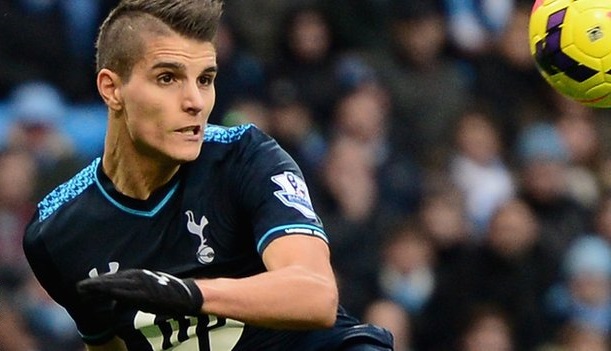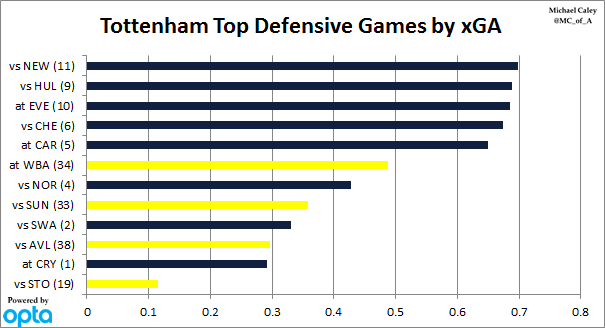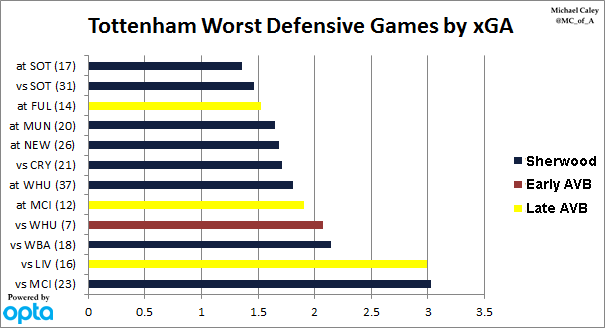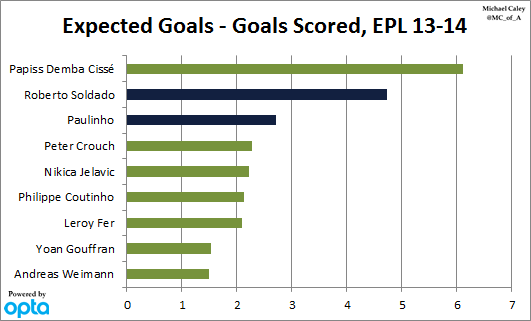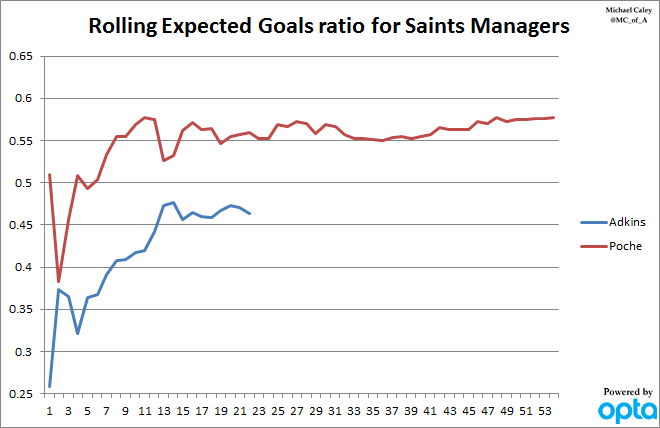Don’t “pull a Spurs.”
All offseason, whenever football clubs were reported to be selling a star to finance new purchases, pundits have warned against the risk of repeating Tottenham Hotspur’s struggles in the 2013-2014 season. The massive sale of Gareth Bale netted enough money to add striker Roberto Soldado, attacking midfielders Erik Lamela and Christian Eriksen and central midfielders Paulinho and Etienne Capoue. Despite all these additions, Spurs finished sixth, and with just a plus-four goal difference they were possibly fortunate to even finish there.
The narrative that developed was simple. You add all these new players, you will struggle to get them to jell, and you will not have an effective team until they do. I think this narrative fails to account for much of what happened with Spurs last year.
First, note what is missing from the pile of big-money acquisitions listed above. No defenders. Spurs chairman Daniel Levy did shell out for Romanian defender Vlad Chiriches, but this purchase was financed by the sale of Steven Caulker to Cardiff City. Tottenham entered the season counting on oft-injured Younes Kaboul and over-the-hill Michael Dawson as key members of their center back corps. They had no backup for left fullback Danny Rose, instead depending on their best defender Jan Vertonghen to cover if Rose got injured. When Rose went down to turf toe in a Spurs’ first Europa League group match, it started an injury cascade as Vertonghen was shifted out wide and then inevitably hurt himself. Against Liverpool in a crucial December league match, Spurs had to field two out-of-position defenders against the Premier League’s best attacking side. The 5-0 shellacking that followed was not entirely surprising given the lineup. Second, the tactical decisions of managers Andre Villas-Boas and Tim Sherwood played key roles in Spurs’ poor season. Early in the season, Tottenham were a solid defensive side who struggled to create big chances in attack. Of Spurs best 13 defensive performances by expected goals, eight came in the first 11 weeks of the season.
However, this defensive solidity was not to last. As his team struggled to score, Villas-Boas let up on his defensive press, but did not replace it with a new strategy. At the same time, Jan Vertonghen sprained his ankle and left Spurs without both their best center back and their only remaining left back. The team collapsed, leading to the home loss to Liverpool that cost Villas-Boas his job. A competent new manager might have instilled a new defensive scheme to recover what was lost, but instead Spurs hired Tim Sherwood. The team’s worst defensive games by expected goals almost all happened either in the final stage of AVB’s managerial tenure or under Sherwood.
The moves by Spurs chairman Daniel Levy this offseason have suggested he saw the same problems with his club. Tim Sherwood was sacked and replaced by Mauricio Pochettino, a manager who has made his name running a high-energy press. The club’s purchases this offseason—Ben Davies and Michel Vorm from Swansea City, Eric Dier from Sporting Lisbon—have added needed depth to the defense. A backup right back in DeAndre Yedlin is probably going to follow, and Spurs are further looking to add a starting center back in Mateo Musacchio if third-party ownership issues can be worked out in time. Plans are in place, then, to solve the defensive problems which doomed Spurs in 2013-2014.
Will these plans actually succeed? In terms of fixing the defense, it seems likely. Pochettino has a strong track record. His Southampton allowed 46 goals last year, sixth fewest in the Premier League. These Saints teams have recorded some incredible pressing numbers, forcing an opposition incomplete pass rate of over 28 percent. No other EPL side was above 23 percent and only five topped 20 percent. Further, the Spurs side he takes over was built for the pressing style of Andre Villas-Boas, so the talent at hand fits the manager well. Especially if Levy can land Musacchio or another starting caliber central defender, it seems likely that Tottenham will not suffer the kind of blowout losses that marred last season.
Whether Tottenham can actually return to true top four competition is another story. One can point to hopeful signs. Erik Lamela barely played for Tottenham, getting only sporadic Europa League opportunities under Villas-Boas before a back injury ended his season. Roberto Soldado and Paulinho were disappointing, but their struggles were heavily a function of poor finishing. If their inefficiency in front of goal was mostly just a slump, Spurs could easily find several more goals from the same players who struggled last year. Only Papiss Demba Cisse—who’s worthy of an article-length treatment himself—cost his team more goals with poor finishing.
There should be a few more goals for Spurs if Soldado and Paulinho stop malfunctioning in front of goal. The other attackers that could drive an improved season are Lamela, as noted, and youth striker Harry Kane. His expected goals adjusted shot rate, on a per minute basis, was second-best among all Premier League players with at least 400 minutes. The sample is small, but Kane shows potential to be a difference-maker for Tottenham.
Further, Pochettino has a history of stepping in and quickly producing better results without any major roster changes. He did so when he took over the Southampton job from Nigel Adkins. Adkins had the team playing acceptable football, but Poche quickly raised their level.
So, then, are Tottenham Hotspur finishing fourth? Maybe third? Probably not. The club has been reasonably well-run for several years, but Spurs’ consistent European contention has always been in part of a function of screw-ups by the top teams. Liverpool consistently punching below their weight has opened the door for Tottenham, and off seasons from Manchester City and Chelsea enabled Spurs to snatch fourth. In recent seasons according to the Swiss Ramble, Tottenham’s wage bill has run at about 60-70 percent of Liverpool’s, which is the lowest of the top five. Those other five have built teams for the 2014-2015 season that all, on paper, appear better than Spurs.
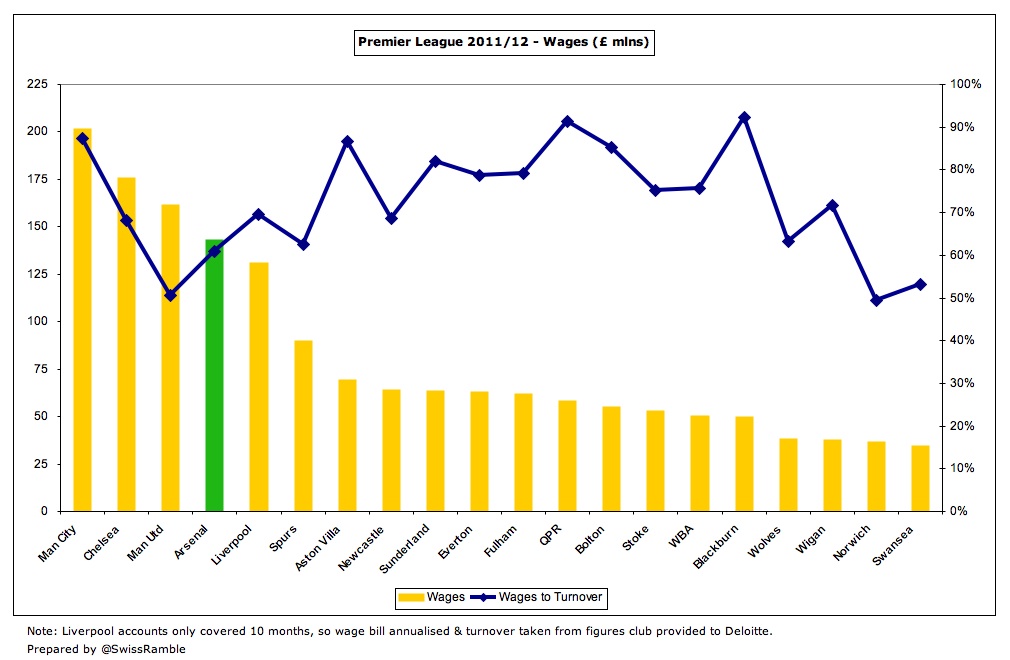
With Liverpool now playing up to that wage bill (and last year exceeding it), Tottenham will likely need fluke off seasons from two of the big six instead of one of the big five. The task has become much more difficult. It is possible that Pochettino could coax an unexpected huge season out of this roster. It is much more likely that Spurs finish sixth again as the economic power structure of the English Premier League reasserts itself.
All data provided by Opta unless otherwise noted.
